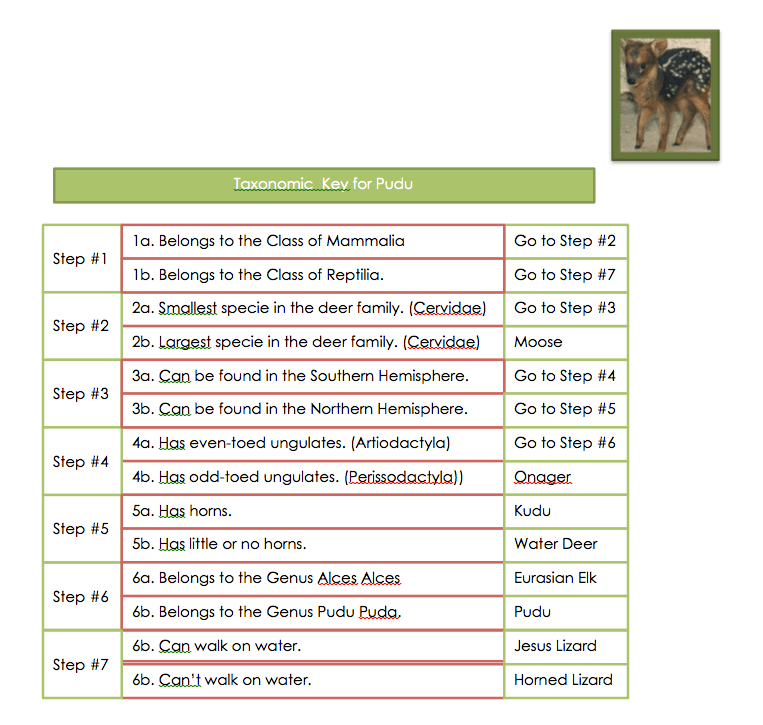What is the definition of the word "organism"
Any living thing
The scientific study of how organisms are classified is called ___.
taxonomy
A tiny, nonliving particle that enters and reproduces in a cell is called a ___.
virus
Photosynthesis
Animals without a backbone are called ___.
Invertebrates
An organism consisting of many cells is called ____.
multicellular
Name the broadest and narrowest categories of classification for orgnanisms.
Broadest: Domain
Narrowest: Species
A substance that has been modified to safely trigger the body to produce chemicals that destroy viruses is called a ___.
Vaccine
What are the 2 main differences between plants and animals?
1. Plants are mostly producers and animals are mostly consumers
2. Plants have no mobility whereas animals do
There are 5 main groups of vertebrates. What are they?
1. mammals
2. reptiles
3. fish
4. birds
5. amphibians
Name the three main things living things need to survive.
Water, food, space
An organisms scientific name consists of 2 parts. What are those 2 parts?
Genus and species
Reproduction that does not require a male and a female is called ___.
Asexual reproduction
What are the 3 main parts of land plants?
1. Leaves
2. Stem/branch
3. Roots
Name 2 ways in which the body of an invertebrate might still have structural support.
Multiple answers
The process by which you and I maintain a normal body temperature is called ____.
homeostasis
According to this taxonomic key, what is a reptile that can walk on water?
Jesus lizard
Name one instance in which fungi cause harm and one instance in which fungi are helpful to humans.
Multiple answers.
What is the difference between vascular and nonvascular plants?
Vascular plants have tissues dedicated to transporting water, minerals, and food
Vertebrates need to regulate their body temperature. Name 2 ways in which they do so.
Multiple answers
Name the 4 characteristics all organisms have in common
1. Made of cells
2. Contain similar chemicals and use energy
3. Respond to their surroundings
4. Grow, develop, and reproduce
A mule is the offspring of a male donkey and a female horse. Mules cannot reproduce. Are donkeys and horses in the same species? Why or why not?
No. Species are organisms that can produce offspring that can also reproduce.
What is conjugation?
The process by which bacteria passes genetic material to neighboring bacteria.
In vascular plants, the tissues that move food are called ___ and the tissues that move water and minerals are called ___.
Phloem, xylem
All chordates have 3 structures in common. What are they?
1. notochord (backbone)
2. nerve cord
3. pouch around the throat